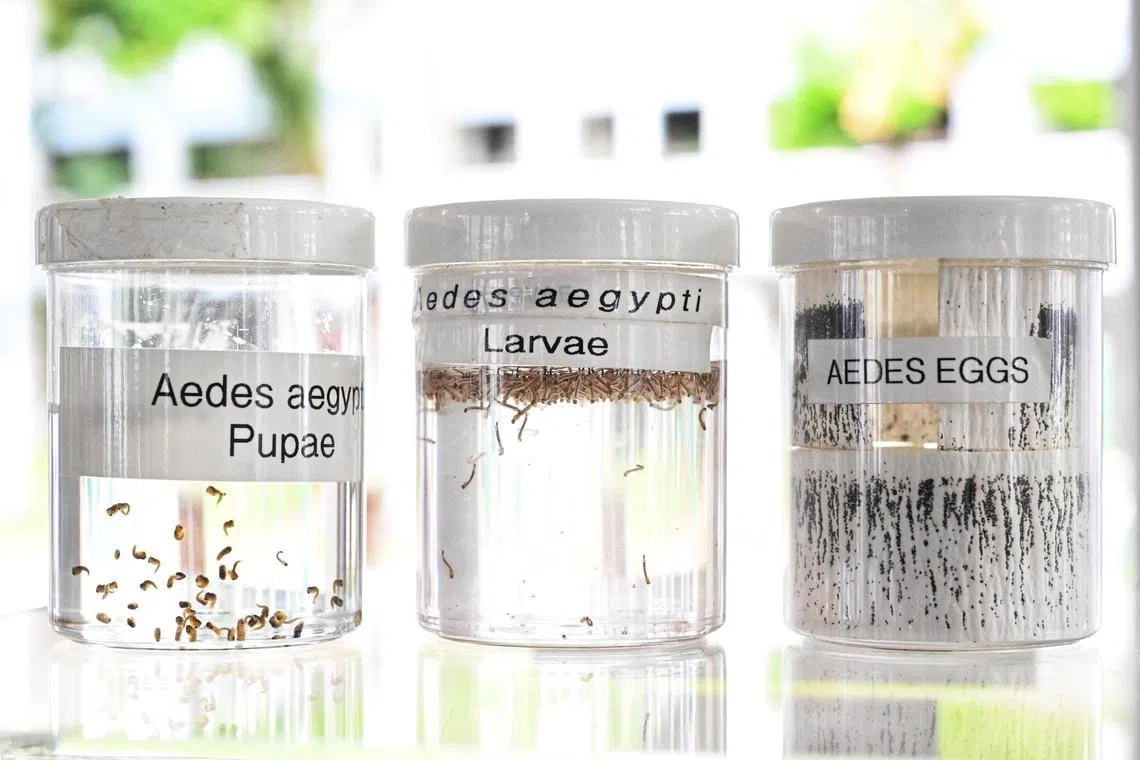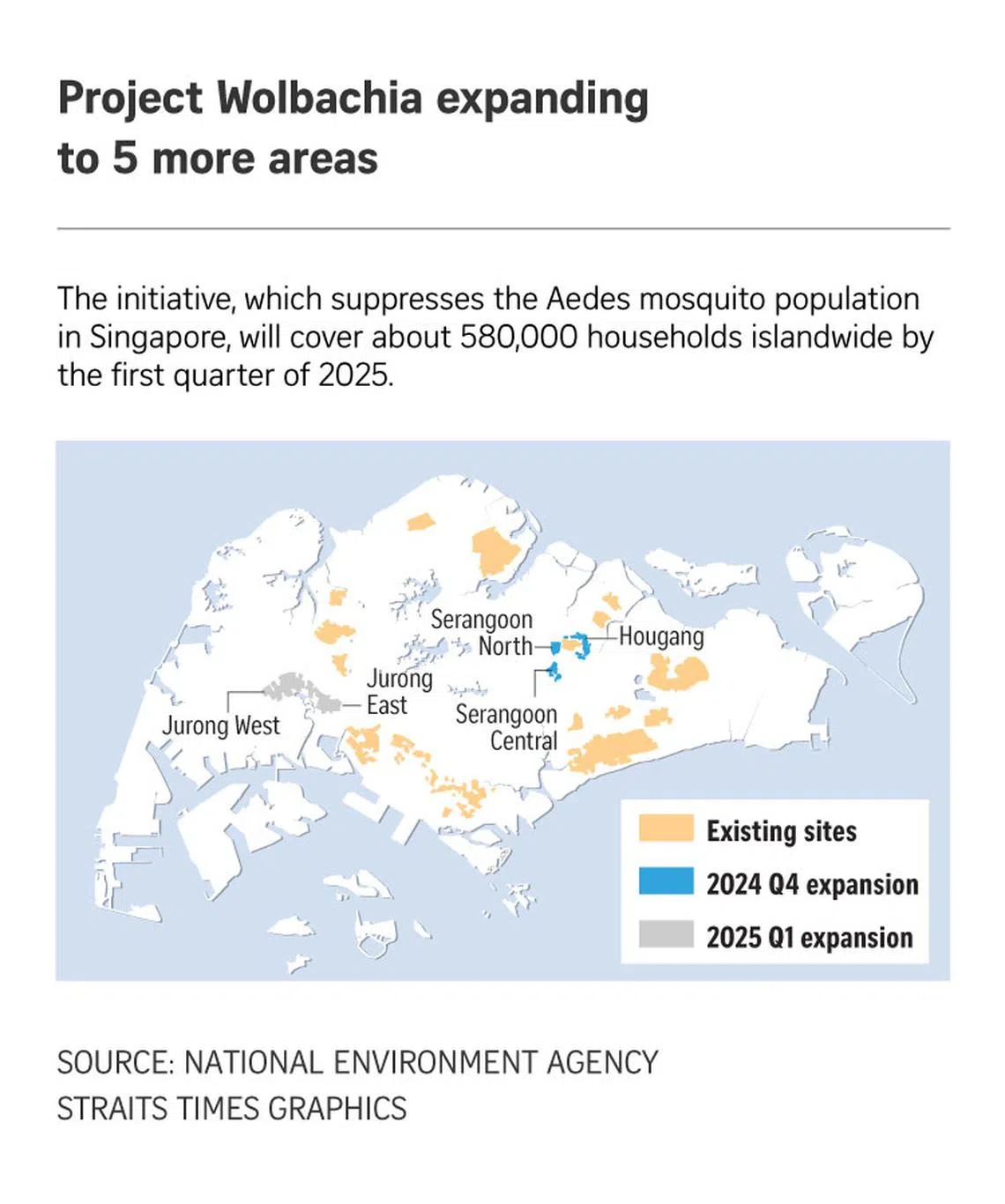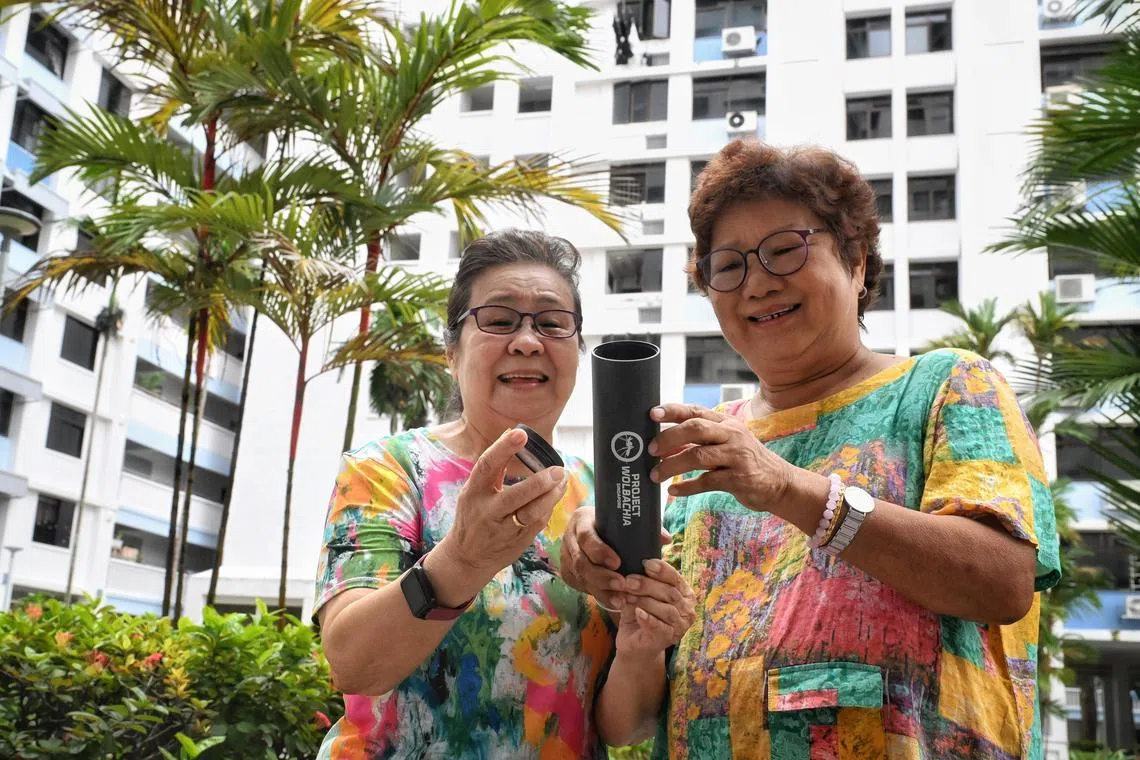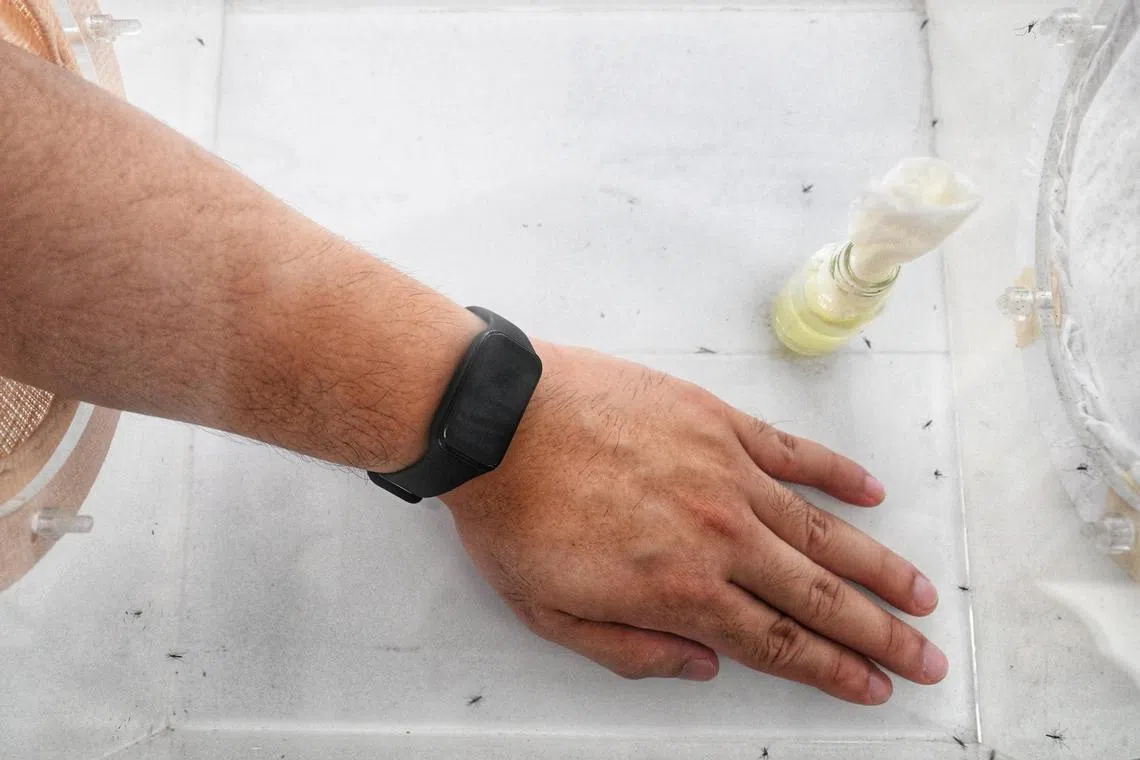Project Wolbachia to expand to five more sites in S’pore to lower dengue risk
Sign up now: Get ST's newsletters delivered to your inbox

(From left) An exhibition booth showing Aedes aegypti in the pupae, larvae and eggs form on Oct 3.
ST PHOTO: CHONG JUN LIANG
SINGAPORE – An initiative to control the Aedes mosquito population through the release of lab-grown male mosquitoes is being expanded to five more residential areas.
This will see 580,000 households covered by Project Wolbachia,
From Oct 21, the initiative will cover more areas in Hougang, where there is an existing project site. It will also be expanded to Serangoon Central, Serangoon North, Jurong East and Jurong West over the coming months.
This was announced on Oct 3 by Minister for Sustainability and the Environment Grace Fu during a mosquito release event in Hougang.
The National Environment Agency (NEA) had previously said that locations were chosen based on historical dengue risk and the Aedes mosquito population.
Under the project, lab-grown male mosquitoes carrying the Wolbachia bacteria are released in high-risk dengue areas to reduce the mosquito population over time.
When the male mosquitoes mate with females, the eggs produced will not hatch.
NEA said a field study, which began in July 2022, found that residents in areas where Wolbachia-infected mosquitoes had been released were about 75 per cent less likely to be infected with dengue.
“This is a result of an 80 per cent to 90 per cent reduction in the Aedes aegypti mosquito population at the study sites,” the agency said, adding that the Wolbachia technology had helped mitigate the risk of major dengue outbreaks as a result.
Speaking at the event, Ms Fu noted that Project Wolbachia would also help prevent the spread of other mosquito-borne diseases, such as zika and chikungunya.
She thanked the Ministry of Health, NTU and NUS for providing data and analysis for the project, as well as the Dengue Expert Advisory Panel for its guidance.
Ang Mo Kio GRC MP Darryl David said that while residents had initially raised concerns about an increase in the number of mosquitoes due to Project Wolbachia, they noticed that the insects did not bite.
Mr David credited NEA for its work in educating residents about the project.
The expansion will bring the total number of areas under Project Wolbachia to 23.

All existing release sites – including places such as Commonwealth, Yishun and Marine Parade – will continue to be covered by the mosquito releases to keep the Aedes aegypti mosquito population low.
According to data from NEA, there were more than 12,000 dengue cases reported from the start of the year to end-September, an increase of more than 20 per cent from the 9,949 cases for the whole of 2023.
There were 13 deaths due to dengue infection from January to June 2024.
While there was a spike in dengue cases earlier in 2024, Ms Fu said the situation for the remainder of the year is unlikely to be unusual.
She noted that the average number of monthly dengue cases here had in fact dropped from about 3,000 in 2022 to 1,300 currently, which she described as an “encouraging sign”.

Hougang residents Lee Lee Wah (left) and Goh Seok Hoon releasing mosquitoes at Hougang Ave 4 on Oct 3.
ST PHOTO: CHONG JUN LIANG

A demonstration showing that male mosquitoes do not bite, at the Project Wolbachia event in Hougang on Oct 3.
ST PHOTO: CHONG JUN LIANG
In 2022, Singapore experienced the second-highest number of annual dengue infections on record, with 32,173 cases.
“We want to continue and expand Project Wolbachia, but obviously this is not a silver bullet. We still need residents to adopt good housekeeping practices to keep mosquito breeding to a minimum,” said Ms Fu.
Dengue cases worldwide have been surging in 2024, with more than 12 million cases and over 8,000 dengue-related deaths, according to figures from the European Centre for Disease Prevention and Control.


